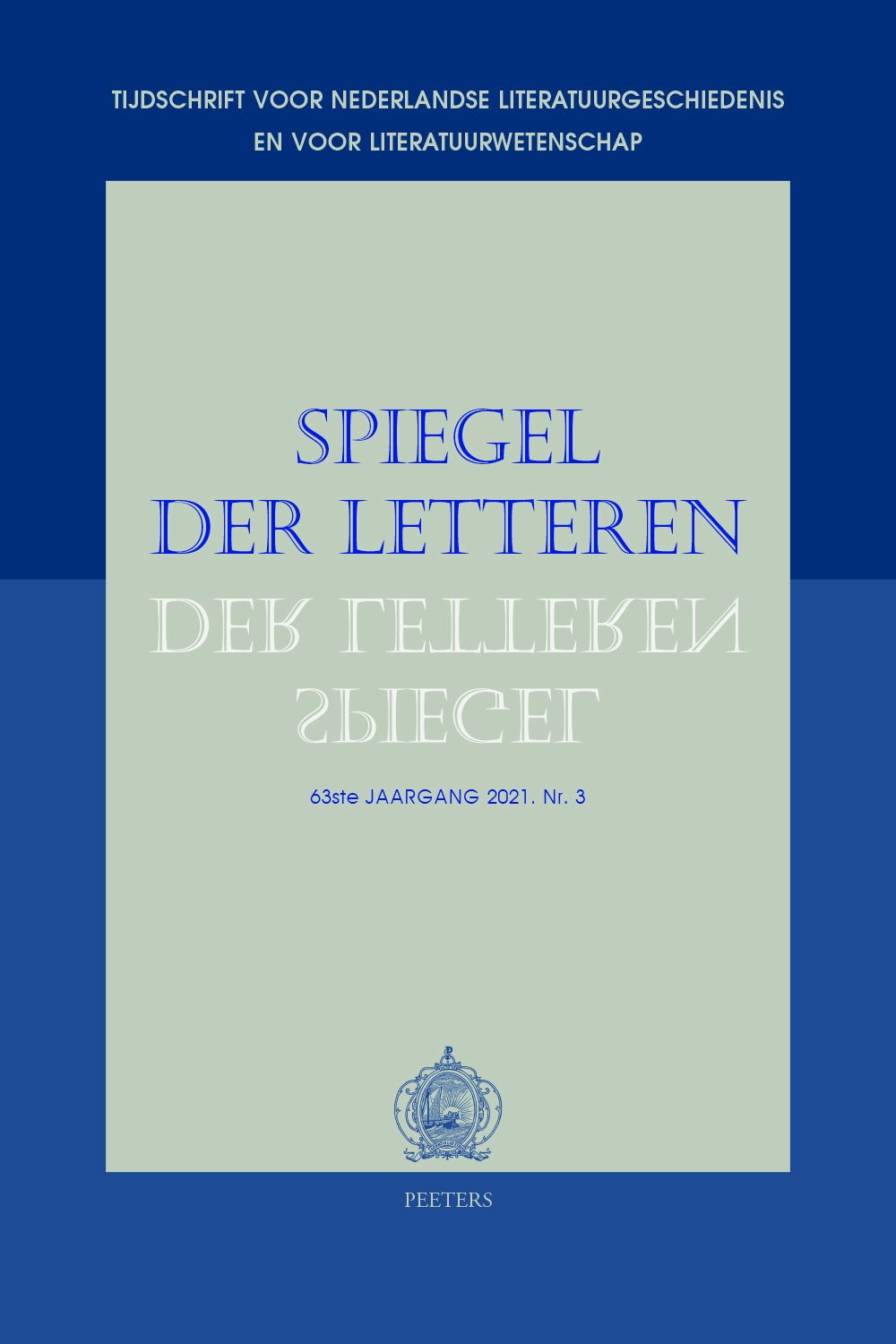 previous article in this issue previous article in this issue | next article in this issue  |

Preview first page |
Document Details : Title: Harry Mulisch en het narcistische schrijven Subtitle: Metafictie bekeken vanuit postmodernisme, modernisme en gnosis Author(s): DE TAEYE, Lieselot Journal: Spiegel der Letteren Volume: 55 Issue: 2 Date: 2013 Pages: 163-187 DOI: 10.2143/SDL.55.2.2977268 Abstract : Metafiction is a core aspect of the work of Harry Mulisch, both in terms of frequency and poetical meaning. This essay analyses the content and form of metafiction in the oeuvre of this writer. Linda Hutcheon’s typology can help to reveal that in Mulisch’s diegetic and linguistic metafiction the creative potential of literature is foregrounded. An approach based on three theoretical perspectives provides us with a framework to clarify this observation. Seen from a postmodern angle, it turns out that in Mulisch’s work language does not have a problematic status, since it is considered as a creative medium. A second analysis, based on the modernist model of the self-begetting novel, shows that narrative structures are substantial for the literary autocreation, which is a typical feature of Mulisch’s poetics. The gnostic doctrines, which constitute the third approach in this article, prove to have influenced both content and form of Mulisch’s metafiction and allow his literary language to enter mystical realms. The features of the three concepts discussed here overlap in many ways. In Mulisch’s writing, therefore, metafiction is a universal literary phenomenon that cannot be investigated from a single theoretical or historical point of view. |
|


